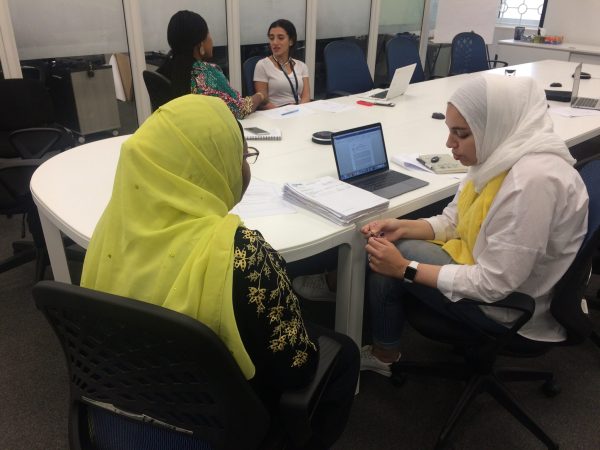Women's empowerment remains a significant topic of discussion all over the world as women often face discrimination, especially when it comes to employment and work conditions.
According to UN Women, women are overall paid less than men. Women in most countries earn on average, only 60 to 75 per cent of men’s wages. In addition to this, a report by the World Bank implies that gender differences in official legislation impact women worldwide. In 90 percent of 143 economies that were studied, researchers found at least one law that restricts women’s economic opportunities. On the other hand, McKinsey & Company found that women’s economic equality is good for businesses. It increases organizational effectiveness and companies greatly benefit from increasing leadership opportunities for women. eHealth Africa (eHA) takes the topic of Women’s Empowerment very seriously and set it as a strategic goal for the year 2017. Amongst other HR initiatives, this led to the formation of eHA’s first Women’s Empowerment Group.

The group started in April 2017 and is based at the Nigeria office in Kano. The aim of the group is to give women a safe space to reflect on personal development and gain greater self-confidence. So what makes this program so special and effective? The concept for the group was developed in collaboration with Tanja Schomann from Philia. Philia is an organization that teaches peer coaching as an alternative method to traditional mentoring schemes and counseling.
The basic idea is to use peer coaching as a tool to enhance communication skills that promote dialogue and mutual understanding. Participating women support each other in reaching their individual goals as well as enabling spillover effects on entire communities. The Philia Peer Coaching concept focusses not just on topics immediately related to work, but on all areas of life. The idea is that empowerment is a mindset that encompasses the entire personality. A woman that is unable to cope with problems at home will not be able to perform well at work. This is why eHA and Philia chose a more holistic approach to women’s empowerment.
“Philia taught me to be a better listener. It also taught me that most women tend to have the same problems regardless of their culture and backgrounds”
The group meeting is conducted on a weekly basis. Each session consists of 30 minutes of peer coaching and 30 minutes of teachings on personal development and communication skills. With eleven women participating in the pilot phase, the group has reached a great level of openness, sharing, and mutual support - which is not always easy to reach in a professional context.
